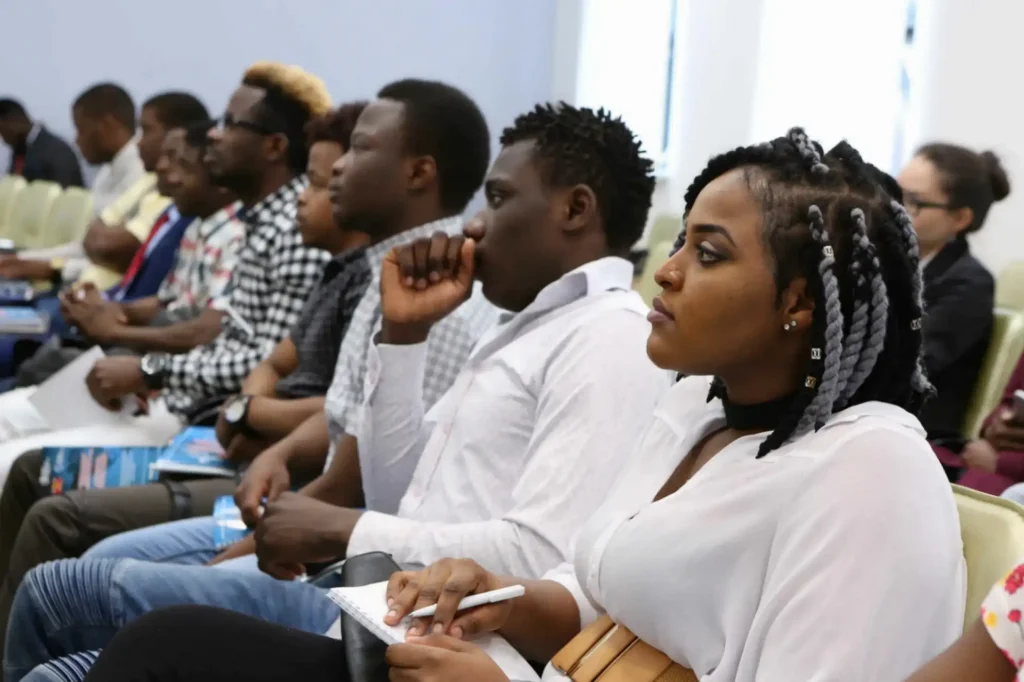Learn more about our initiatives supporting Black educators and students, aimed at fostering fair education and cultural exchange. Find details and the latest updates in our "News" section.
In 2025, BE-U is expanding its commitment to supporting Black educators and students through a series of new initiatives. These efforts aim to provide increased resources, mentorship, scholarships, and professional development opportunities. By addressing the unique challenges faced by Black educators and students, BE-U seeks to foster a more inclusive and equitable educational environment.
Expanding Scholarship Opportunities
One of the major initiatives BE-U is implementing in 2025 is the expansion of scholarship programs. These scholarships aim to reduce financial barriers for Black students pursuing careers in education. Scholarships will be available for undergraduate, graduate, and doctoral students, with a focus on those who demonstrate leadership and commitment to community service. Additionally, BE-U is partnering with corporations and nonprofit organizations to increase the funding pool for these scholarships.
Professional Development for Black Educators
Professional development remains a cornerstone of BE-U’s mission. In 2025, the organization is launching a series of programs designed to enhance the skills and career advancement of Black educators. These include:
- Leadership Training: Programs to prepare Black educators for leadership roles in schools and universities.
- Mentorship Networks: A structured mentorship program that connects experienced educators with those new to the profession.
- Workshops and Conferences: BE-U is increasing the number of annual workshops and conferences focused on culturally responsive teaching, classroom management, and policy advocacy.
Mental Health and Well-Being Initiatives
Recognizing the importance of mental health, BE-U is introducing new programs aimed at supporting the well-being of Black educators and students. These initiatives include access to therapy sessions, stress management workshops, and peer support groups. The goal is to create a supportive community where educators and students can share experiences and receive guidance on navigating the educational system.
Strengthening Community Engagement
BE-U is also focusing on building stronger connections between Black educators, students, and the communities they serve. This will be achieved through:
- Community Service Projects: Encouraging educators and students to participate in initiatives that directly impact their local communities.
- Parental Involvement Programs: Providing parents with resources and workshops to help support their children’s educational journey.
- Advocacy and Policy Influence: Working with policymakers to push for reforms that address systemic barriers faced by Black educators and students.
Key Statistics and Impact
To illustrate the importance of these initiatives, the following table highlights key statistics on Black educators and students in the U.S.:
| Category | Statistics |
|---|---|
| Black teachers in U.S. schools | 7% of total teaching workforce |
| Black students in higher education | 14% of total student population |
| Average student loan debt for Black graduates | $25,000 – $40,000 |
| Retention rate of Black teachers | Lower than national average |
These figures underscore the need for targeted support to ensure Black educators and students have the resources they need to thrive.
Conclusion
The new BE-U initiatives for 2025 represent a significant step toward creating a more inclusive and supportive educational landscape for Black educators and students. By focusing on scholarships, professional development, mental health, community engagement, and advocacy, BE-U is addressing systemic challenges and paving the way for a brighter future. As these programs take effect, they are expected to make a lasting impact on the educational system and help foster a more diverse and equitable environment.


